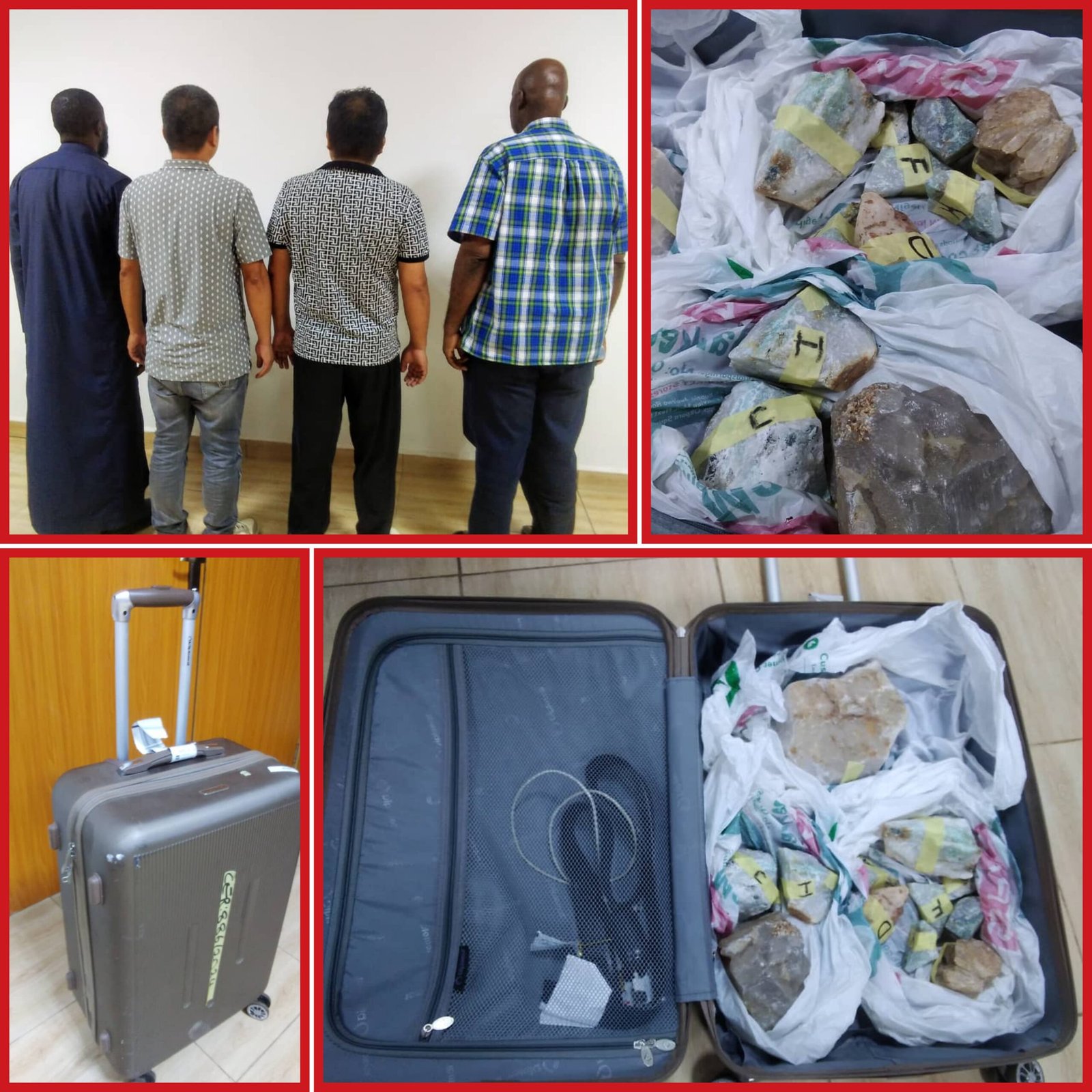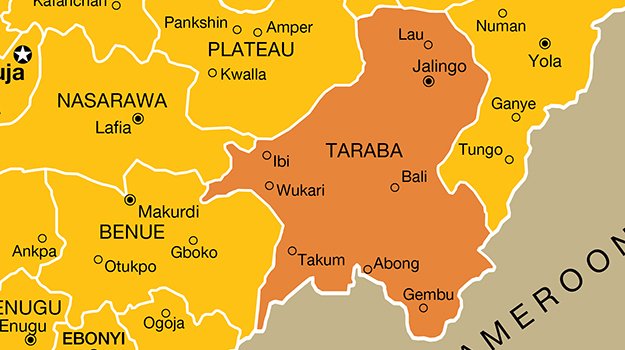In November 2024, the Nigeria Police Force made headlines by arresting 130 suspected individuals, among them 113 foreign nationals, many from China and Malaysia, implicated in high-level cybercrimes that have been wreaking havoc on Nigeria’s security and economy. While this arrest is only the latest in a series of high-profile operations, it underscores a disturbing and escalating trend: foreign nationals, particularly Chinese nationals, are playing a central role in two destructive activities—cybercrime and illegal mining—that threaten the stability of Africa’s largest economy. Gom Mirian reports
As the global community grows increasingly concerned about the national security threats posed by these illicit activities, one thing is clear: Nigeria is on the frontlines of a complex, evolving battle that spans both the digital realm and the physical extraction of its natural resources. The involvement of foreign actors in these crimes is not just a nuisance but a systemic threat requiring urgent intervention.
Cybercrime: A Digital Assault on Nigeria’s Financial Sector
Cybercrime in Nigeria has surged in recent years, evolving from simple scams to sophisticated attacks that undermine the country’s financial stability. The arrest of 130 suspects on November 2 brought to light an alarming trend—foreign nationals are at the heart of these cyberattacks.

EFCC Sensitive Data
Cybercrime in Nigeria is no longer just about stealing money from individuals; it has morphed into a sophisticated web of operations aimed at breaching critical national infrastructure, hacking bank accounts, and compromising sensitive data.

According to the Economic and Financial Crimes Commission (EFCC), cybercrime costs the Nigerian economy an estimated $500 million annually.
“The problem with cybercrime in Nigeria is that it’s no longer just a local issue,” said a senior IT officer at a Nigerian commercial bank, who spoke on condition of anonymity. “The hackers we’re seeing are often part of international syndicates, and the scale of the problem is enormous. Every month, we face multiple breaches, and the losses are significant.”
The frequency and sophistication of cyberattacks are growing at a frightening pace. Banks such as First Bank of Nigeria, Access Bank, and Guaranty Trust Bank have all reported increasing instances of hacking, resulting in major financial losses.



“We lose thousands every month from cyberattacks, and the worst part is that it’s a cat-and-mouse game,” the IT officer added. “No matter what security protocols we put in place, there’s always a new vulnerability, and the hackers are always one step ahead.”
The digital onslaught is not just limited to financial institutions. Every day Nigerians, like Bisola Adewale and Chijioke Chukwuemeka, have fallen victim to these crimes, losing hard-earned savings to faceless cybercriminals. In an emotional interview, Bisola recalled how her bank account was drained of N700,000 ($414.84) in a matter of hours, with no immediate recourse from her bank.
“I just landed at the airport from Lagos and received a debit alert of N700,000 ($414.84) from my account. It was on a weekend so I couldn’t log a complaint immediately. I went to the bank on Monday and my bank told me they could not trace who withdrew the money but I should check back after 15 working days afterwards the story was still the same,” Ms. Adewale lamented. “I also logged another complaint on my bank’s website and copied CBN but this is one year plus I still haven’t recovered the money. It’s devastating,” Ms. Adewale shared.
Another victim, Chijioke Chukwuemeka, an Abuja-based businessman, shared his harrowing experience of having his bank account hacked by unknown individuals, suspected to be part of the broader network of foreign cybercriminals.
“I woke up one morning to find that all my savings were gone. I couldn’t believe it. When I contacted my bank, they promised to investigate, but nothing was done. It’s been six months now, and I’ve received no feedback. It feels like I’m just a small pawn in a much bigger game,” Chukuwuemeka lamented.
Such stories are becoming alarmingly common, as Nigerian banks struggle to keep pace with the relentless wave of cyberattacks.
A recent report from the Financial Institutions Training Centre (FITC) revealed that Nigerian banks lost over N42.6 billion to fraud between April and June 2024 alone.
Illegal Mining: A Source of Revenue for Insurgents
While cybercrime captures global headlines, another equally destructive issue is brewing deep in Nigeria’s hinterlands: illegal mining. Chinese nationals have been repeatedly implicated in illegal mining operations that not only degrade the environment but also fund insurgent groups, destabilising entire regions. The nexus between illegal mining, environmental degradation, and armed violence has become a serious concern for national security.
Illegal mining, often conducted without licenses or environmental safeguards, is rampant in several Nigerian states, particularly Zamfara, Niger, and Akwa Ibom.


Here, Chinese nationals have been found illegally extracting valuable minerals such as gold, tin, and coal. The trade-in of these minerals is not only illegal but often linked to criminal syndicates that fund insurgencies and other forms of violent extremism.

In April 2020, Nigerian authorities arrested two Chinese nationals in Zamfara for illegal mining, an area where federal authorities had already imposed a ban due to rampant banditry. This arrest was followed by several others, including a 2022 operation in Kwara State where Chinese nationals were caught transporting lepidolite (a mineral used in battery production) without permits.
In 2023, the Economic and Financial Crimes Commission (EFCC) arrested 13 more Chinese nationals engaged in illegal mining. The Akwa Ibom State government also shut down a Chinese-owned company for operating without authorization to mine titanium ore in the Ibeno community.
Dr. Olufemi, a Nigerian security expert focused on economic crimes, explained, “Illegal mining is not just about the exploitation of resources; it’s a conduit for funding insurgents. The proceeds from these illegal activities often end up in the hands of criminal groups who use the funds to purchase weapons, perpetuating insecurity in the region.”
The environmental toll is equally alarming. Illegal mining operations typically disregard basic environmental protections, leading to soil erosion, water pollution, and the destruction of vast tracts of farmland. These operations often take place in the same regions affected by violent conflicts, exacerbating tensions and fuelling further instability.
The Chinese Footprint in Nigeria’s Illicit Economy
The growing presence of Chinese nationals in Nigeria has raised questions about the role their government plays in regulating the activities of its citizens abroad. While many Chinese nationals come to Nigeria for legitimate business purposes, such as infrastructure development and trade, others are involved in criminal enterprises.
There are an estimated 100,000 Chinese nationals in Nigeria, with a significant number working in sectors like mining, construction, and telecommunications. However, reports suggest that a growing number of Chinese nationals are participating in illicit activities that undermine Nigeria’s sovereignty and economic growth.
“While China has been active in facilitating trade and infrastructure projects in Africa, the actions of a few unscrupulous actors are casting a long shadow over these efforts,” said Dr. Samson, a security analyst. “The question we need to ask is whether the Chinese government is turning a blind eye to the illegal activities of its citizens abroad.”
The Nigerian government has yet to take decisive action to curb the rising tide of illegal activities linked to foreign nationals. While recent arrests are encouraging, they remain a small part of a much larger problem that requires comprehensive reforms in both national security and diplomatic relations.
The Economic Toll: A Growing Crisis
Illegal mining and cybercrime are not just security threats; they are financial drains on Nigeria’s already struggling economy.
According to Jonathan Gbefwi, Chairman of the House of Representatives Committee on Solid Minerals, Nigeria loses approximately $9 billion annually due to illegal mining.
This revenue loss is compounded by the increased costs faced by financial institutions as they battle a surge in cybercrime.
Nigerian banks, already under pressure from inflation and economic volatility, are being forced to invest heavily in cybersecurity measures to fend off hackers. These costs are ultimately passed down to consumers, who face higher banking fees and reduced access to financial services.
Meanwhile, local communities continue to suffer from the fallout of these illicit activities. In many mining areas, the environmental damage has left local populations vulnerable to displacement and poverty, with little recourse for justice.
Fruits of Impunity: A Glimpse into Chinese Justice
While the Nigerian government has yet to take decisive action against the increasing number of foreign cybercriminals operating within the country, one can only imagine how a Nigerian would be treated if caught engaging in similar activities in China.
China’s legal system is renowned for its rigorous enforcement of laws, particularly when it comes to cybercrime. A Nigerian caught hacking into Chinese networks or committing similar offences would likely face harsh penalties, including long prison sentences and hefty fines. The Chinese government views cybercrime as a serious threat to social stability and has little tolerance for such activities. In stark contrast, Nigerian authorities often struggle with systemic challenges within the justice system, which sometimes leads to leniency for foreign offenders.
In 2019, a Nigerian man was arrested in China for attempting to defraud local businesses through an online scam. After a swift trial, he was sentenced to over 10 years in prison, underscoring the stark difference in how foreign criminals are treated in China compared to the relative impunity often afforded to foreign offenders in Nigeria.
Dr. Samson, a security expert, commented, “This disparity in how international criminals are treated tarnishes our national reputation and reflects poorly on our justice system. We must establish clear, consistent consequences for criminal activities, regardless of the perpetrator’s nationality.”
A Call for Action
As Nigeria grapples with the dual threats of cybercrime and illegal mining, it is clear that the country needs a coordinated, multifaceted approach to secure its borders, protect its resources, and safeguard its economy. This includes strengthening cybersecurity infrastructure, cracking down on illegal mining, and holding foreign nationals accountable for their illegal actions.
At the heart of this challenge lies the need for greater international cooperation. While Nigeria is making strides in combating these crimes, it is evident that foreign nationals, particularly from China, are exploiting loopholes in Nigerian law and exploiting the country’s porous borders. In this context, Nigeria must engage diplomatically with China to curb the involvement of its nationals in illegal activities and demand stronger accountability measures.
The recent arrests of foreign nationals involved in cybercrime and illegal mining are a wake-up call for Nigeria. The stakes could not be higher. Without urgent action, the country risks seeing its economy further crippled, its national security compromised, and its future jeopardised. The time to act is now.



